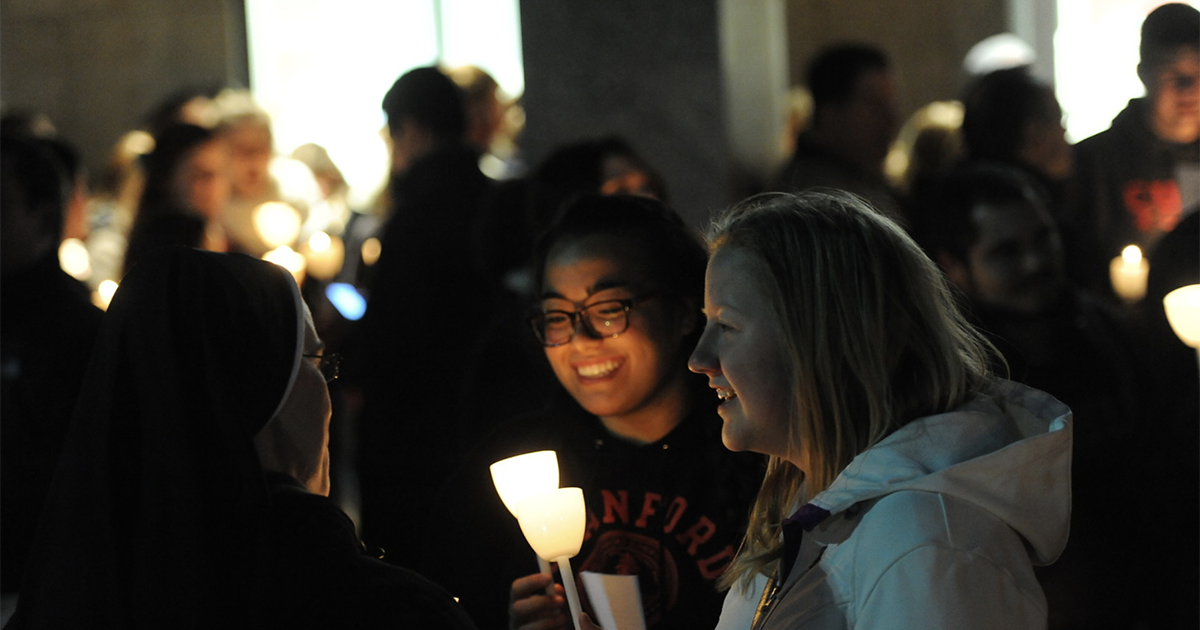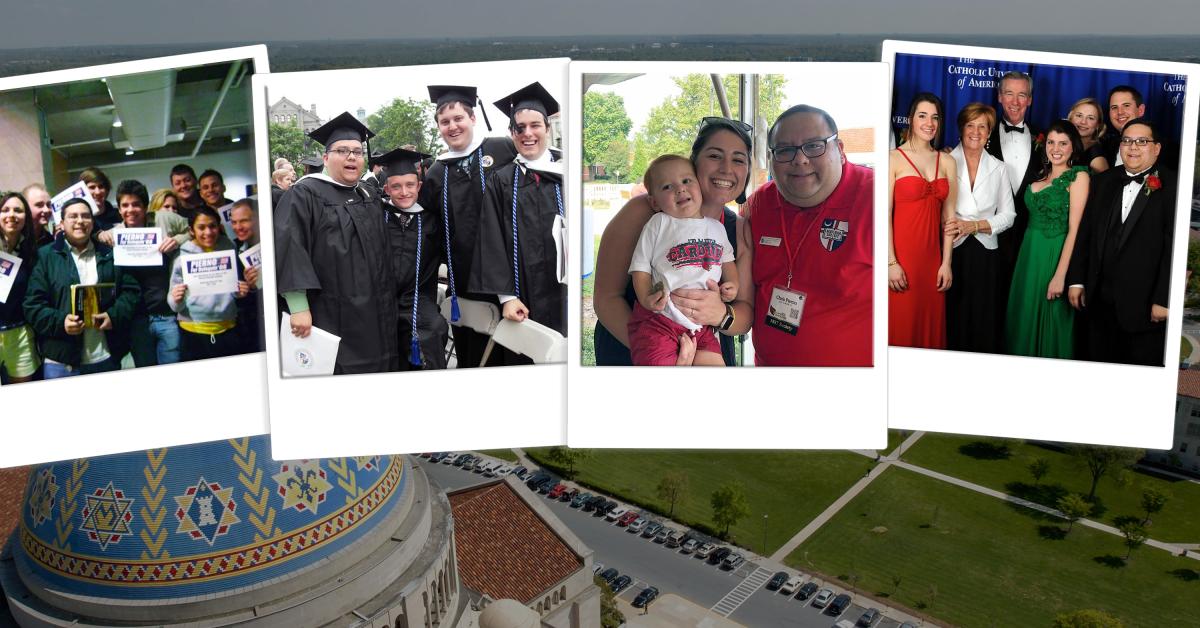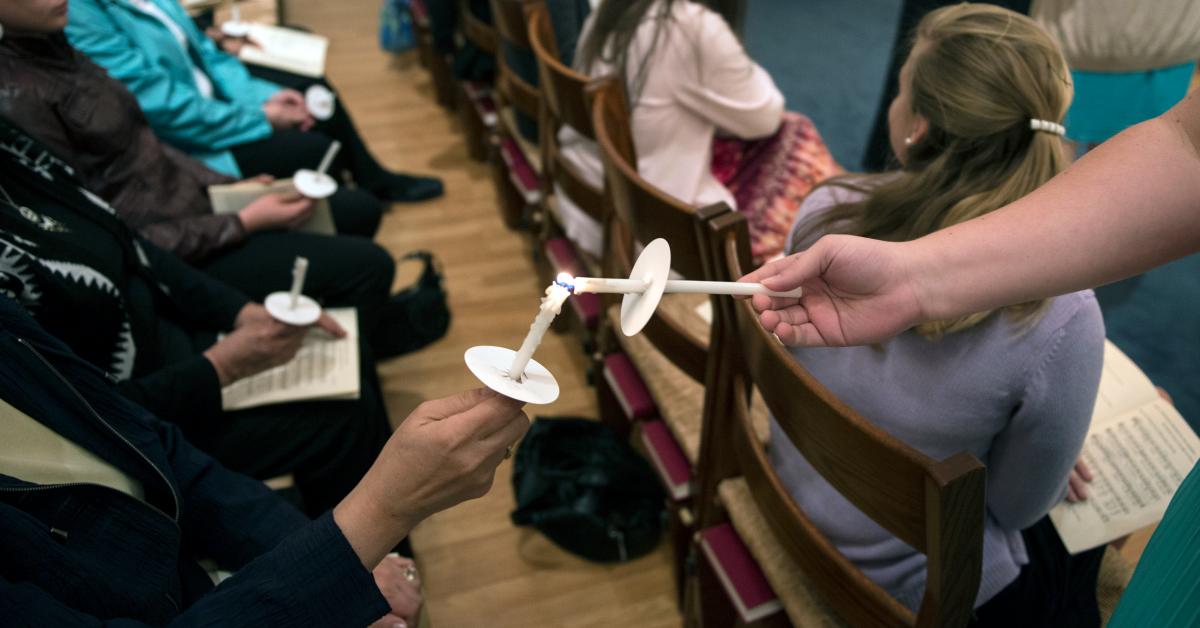Celebrating the resurrection of Christ and the entrance of new members into the Church, the Easter, or Paschal, vigil is one of the most significant Masses of the entire liturgical year.
Church history reveals that part of “keeping vigil” through the nighttime hours involves a prolonged Liturgy of the Word, as anyone who has attended an Easter vigil Mass can attest. In some traditions, a number of scriptural and even non-scriptural readings were proclaimed to an assembled body as it kept a “night watch” before the observance of a major liturgical celebration. While the number of “vigil liturgies” has declined to the Paschal Vigil (and a suggested Pentecost Vigil), the character of the liturgy as a vigil of readings remains.
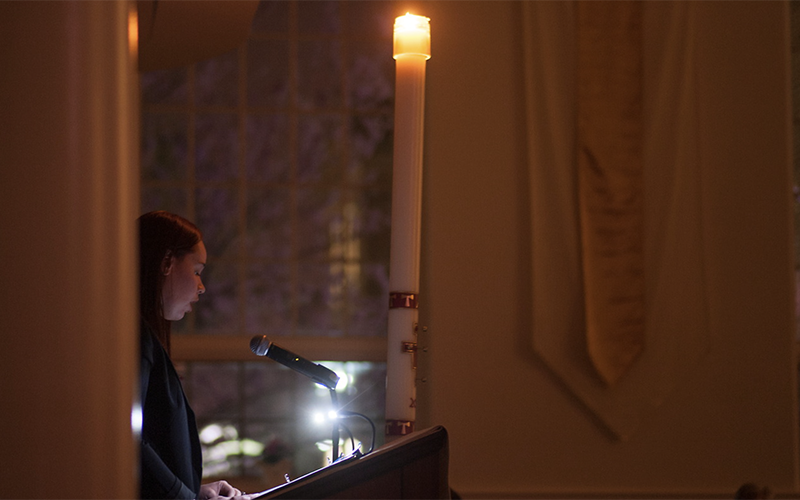
Yes, readings plural. The course of the Paschal Vigil prescribes seven readings from the Old Testament, one from the epistles (Romans 6), and a gospel of a resurrection account – nine in all. The proclamation of all these readings is daunting, especially to congregations used to the standard three readings of a Sunday liturgy, or who have come to the Saturday evening Mass expecting a shorter celebration. The realization that seven(!) Old Testament readings will precede the gospel is enough to throw any church-going Catholic into consternation!
Yet the choice and arrangement of these readings is both quite ancient and highly significant. They declare the overwhelming panorama of salvation history and profoundly announce that salvation continues to be accomplished today. The full proclamation of the entire vigil of readings — all nine — communicates this meaning, and is the largest component of the Paschal Vigil. Liturgical guidelines for Easter Vigil Mass provide that for “pastoral reasons” the number of readings may be reduced, but insist that Exodus 14:15-15:1 must be proclaimed.
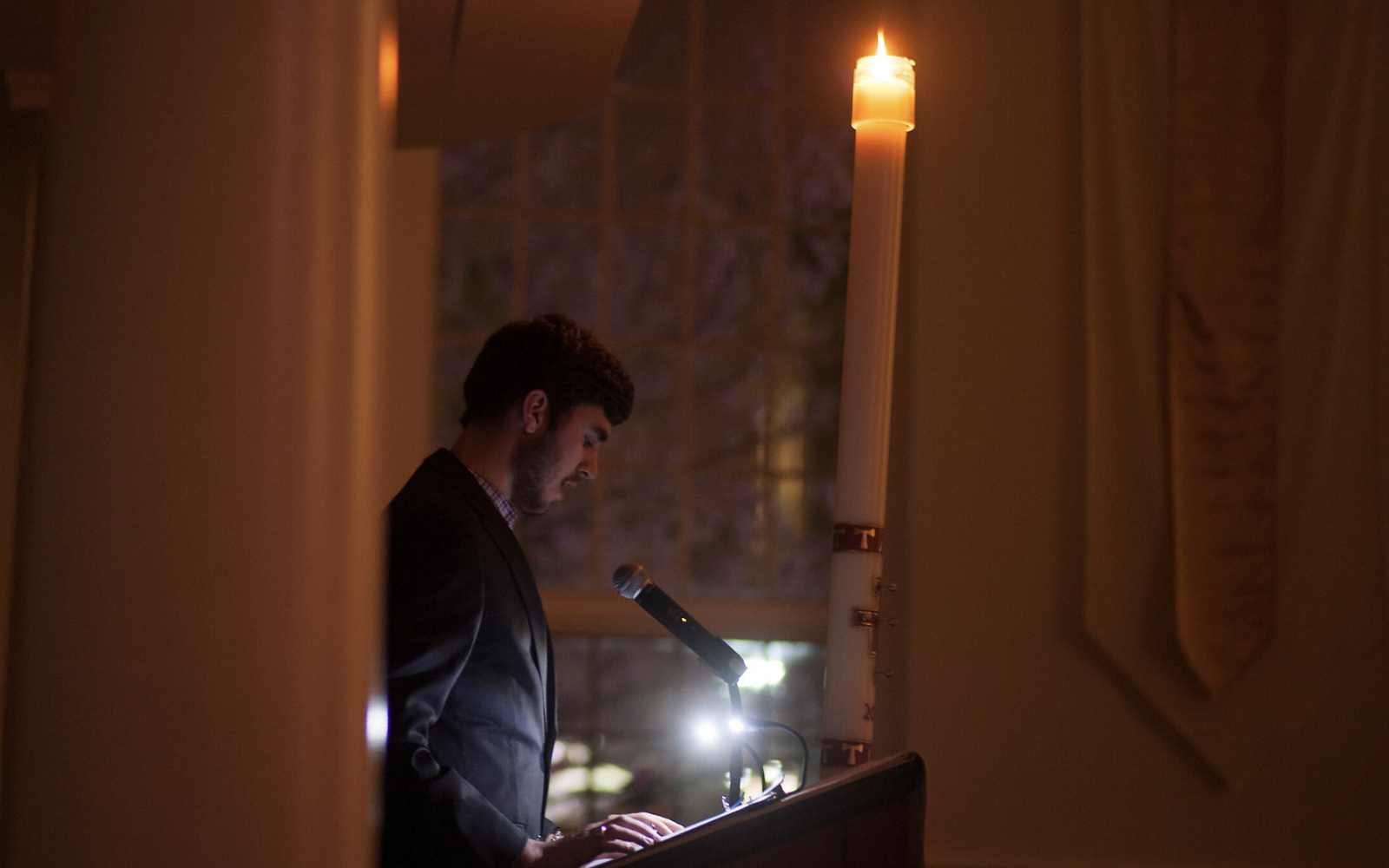
Of all the readings, why Exodus? The theological answer is that Exodus serves as the great “typology” of the resurrection of Christ. In the Exodus account, God secures the liberation of the Israelites through their miraculous passage through the Red Sea. Liberated from the clutches of the Egyptians, they begin the journey which will establish them as the Chosen People of God. Here Pascha is understood as transforming “passage,” from slavery to freedom. In Christ this “passage” is writ large, from death to new life, and made a universal experience for all believers, a connection between promise and fulfillment.
However, if one looks more closely at this Exodus account, it reveals a depiction of God some might think inconsistent with the Easter celebration. Conventional wisdom would probably understand the manner in which God leads the Israelites through the sea this way: the evil Egyptians pursue the Israelites into the sea and God, after leading the Israelites out, has the sea cover the Egyptians in punishment for their wickedness. The text, though, is a bit more specific. While the Egyptians do pursue the Israelites, Exodus also states they begin to realize that God is fighting for Israel against them. The Egyptians have “wised up,” so to speak (especially after not getting the picture through a variety of plagues!), and sound the retreat (14:24-25). However, as they are fleeing, it is God who clogs their chariot wheels with mud so that they cannot escape. They are, in fact, trapped – by God. It seems quite a vengeful act as God very casually calls the waters back, drowning the Egyptian army. And we are left with the chilling and yet matter-of-fact statement, “Not a single one of them escaped” (14:28). To add insult to injury, the Exodus passage concludes with the liberated Israelites singing and dancing over the destruction of the Egyptians whose bodies are washing up on the shore (15:1).
In most proclamations, the complexity of this scenario might pass over our heads. Yet the image of freedom at a price is meant to remain with us. What sort of God, Annie Dillard once challenged us, do we “so blithely invoke?” How do we justify our “alleluias” after remembering such an event, where the liberation of one people comes at the destruction of another, people with families and lives, who may just have been “following orders”? And at the hands of a God, whom we say is all good and all loving; who causes the sun on the just and the unjust? These questions are part of the great paradox of the resurrection: when faced with more than the suppression of a people, but with the very frustration by crucifixion of God’s very plan in Jesus, God responds not with equal destruction, but rather breathes the new life of resurrection.
We must listen to the Exodus account at Easter Vigil in order to truly ponder both the wonder of the resurrection and God — who is more than we can ever consider or imagine — who calls us into relationship. We must be struck with the awesome, life-changing nature of this act. Ours is not a God to domesticate, who serves only purposes that we consider right and just for God to fulfill. The liturgy of Pascha once again invites us to dare say yes to this unpredictable God; to accompany God into those places, where Dillard again challenges, “from which we can never return.” It takes the courage of faith to dare say “Alleluia” to that!
Published on: Saturday, April 8, 2023
Tags: Alumni Association Board of Governors, Easter, vigil


